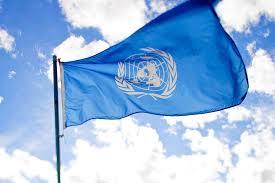
Ashgabat, Turkmenistan, Aug. 23
By Huseyn Hasanov Trend:
Training was held at the Ashgabat international customs terminal as part of the Global Container Control Program (GCCP), Trend reports with reference to the State Customs Service of Turkmenistan on Aug. 23.
This program was created in 2004 by the United Nations Office on Drugs and Crime (UNODC) and the World Customs Organization (WCO). Turkmenistan joined it in 2009.
The event, which was attended by international experts and employees of the State Customs Service, is aimed at strengthening the capacity to identify and detect fake seals in container transportation, as well as the use of modern methods and means of customs control.
Practical classes at the terminal allowed participants to improve their skills in identifying and analyzing seals and customs documents, the report said.
Turkmenistan shares land borders with Kazakhstan, Iran, Uzbekistan, Afghanistan, and sea borders with Azerbaijan, Russia, Kazakhstan and Iran.
Sea transportation in the Caspian Sea is becoming increasingly important in the foreign economic relations of Turkmenistan, the volumes of cargo being handled at the berths of the harbor are increasing, through which industrial and agricultural equipment, automotive equipment, metal products, timber, mineral fertilizers are delivered, while polypropylene, coke and other petroleum products, chemical and construction industry products are exported.
Follow Trend on Telegram. Only most interesting and important news
